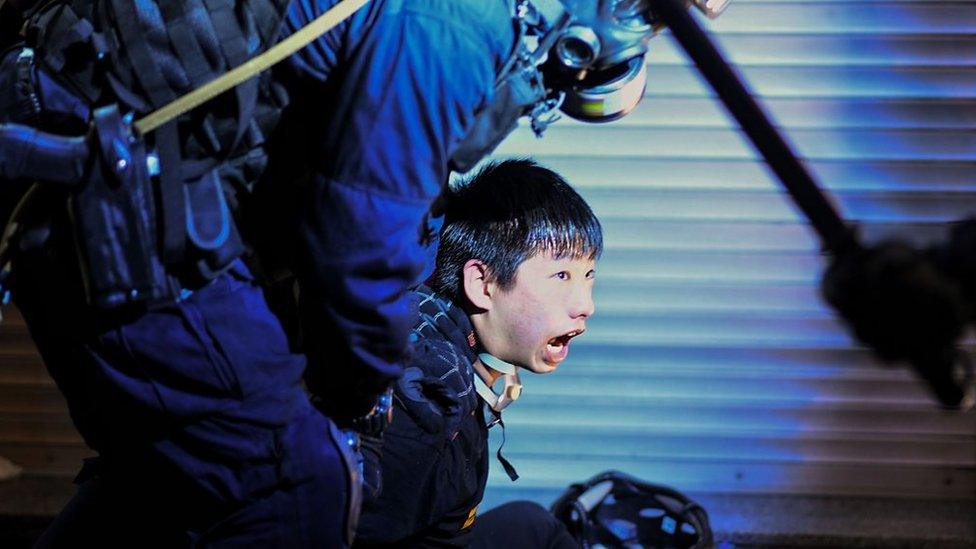‘I don’t have any hope for my future in Hong Kong’
- Published
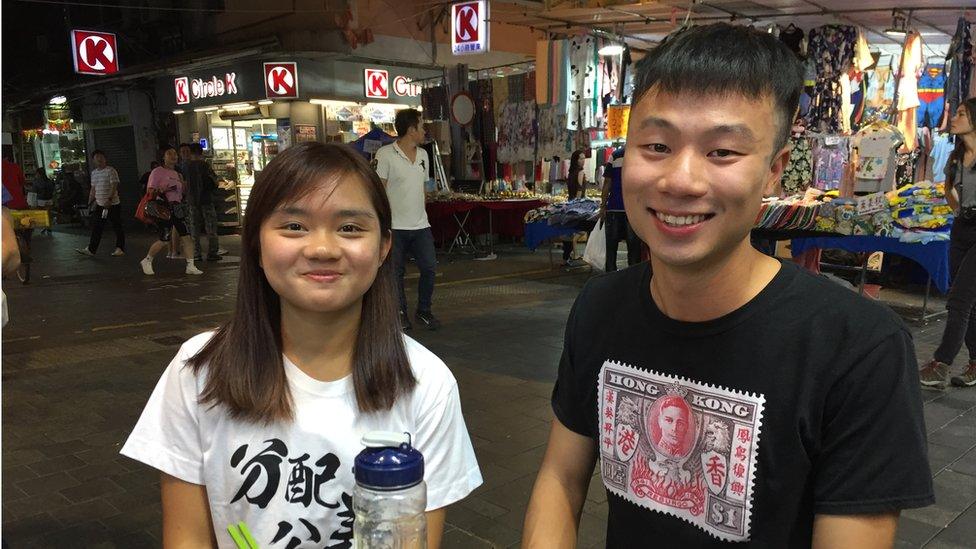
Students Leung Suet Lam and Dicky Cheung have a bleak vision of their future
"I entered university to get a better life, but I don't have hope for my future," 20-year-old Dicky Cheung tells me.
Dicky and his friends are students, but behind their camaraderie and carefree smiles lies an anxiety about their futures.
They met me in the Mongkok district of Hong Kong and over a dinner of salty spinach and squid, I heard stories of frustration and futility.
Dicky is studying to be a teacher and wants to be the main breadwinner for his family.
But he doesn't think that's possible, because once he graduates from university he says he's unlikely to get a good job - or any job at all.
"I want to change my family's life. In Hong Kong they have to work hard to pay the high rent," he told me, the emotion spilling out of his eyes.
"Now when I grow up I cannot do that. The job vacancies are lower than before [and] when we graduate in three years the situation [will be] much lower."
For 18-year-old Leung Suet Lam, the picture is much the same.
"When I graduate, I think I'll live with my family," she tells me. "It is very difficult to get a flat here... buying is not realistic.
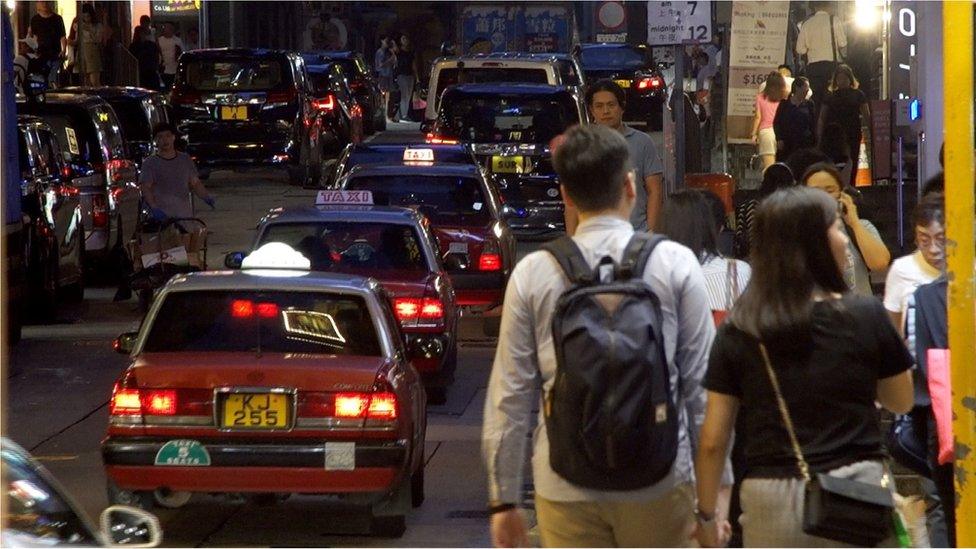
Young people are facing three big economic challenges
"The structure of Hong Kong's houses are also very small - I will spend a lot of money to buy a small flat and that will limit the imagination of my life."
Young people like Dicky and Leung are grappling with three big economic challenges: wages aren't rising, the job market is increasingly competitive, and property prices are surging.
While the reasons for the political protests are complex, and aren't to do with buying a home or getting a job, many young people in Hong Kong feel ignored by decades of poorly-planned government policies.
That's fuelled their resentment of a system they feel is working against them.
Slow wage growth
Competition for a place in one of Hong Kong's top universities is fierce, but even if you do get a spot and graduate, a good job or stable income isn't guaranteed.
Increasingly, Hong Kongers are also competing for jobs with Chinese students.
Chan Wai-Keung, a lecturer at Hong Kong Polytechnic, says in the 1990s, the salary starting point of fresh graduates was around HK$25,000 ($3,188; £2,594). Nowadays he says it is maybe just HK$28,000.
Mr Chan published a report looking at wage growth, external and living costs for Hong Kong's youth over the last 30 years.
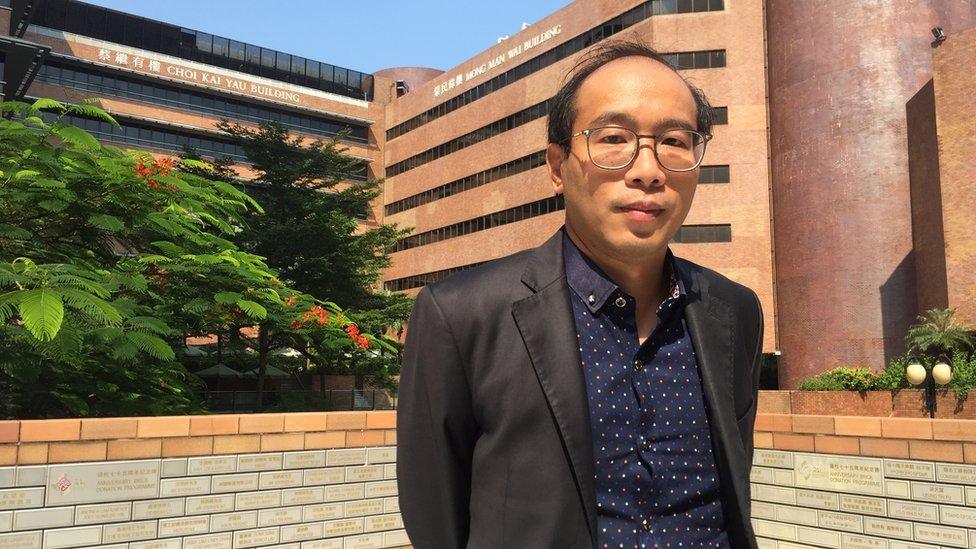
Chan Wai-Keung says education needs to be modernised
He found that while starting salaries have stagnated, property prices have gone up tenfold.
"Our education programme is old fashioned," Mr Chan told me. "Our economy is dominated by a handful of powerful families, who made a fortune in the property market. They are reluctant to invest in high tech industries or innovative ideas.
"Our government pays lip service to the high-tech development. Even if young people want to get into this new industry there's not a lot of good chances for them."
Homes out of reach
Those bleak job prospects have meant that things like buying a home are out of reach for most Hong Kongers, except for the lucky few - like Karide Chow.
A tech worker with an international firm in the city, she borrowed money from her mother to buy a flat with her brother.
"It's quite difficult to own a home in Hong Kong and the prices of the apartments [kept] rising in the past few years," she tells me. "That's why we chose to buy the flat this year, because the prices will keep going up."
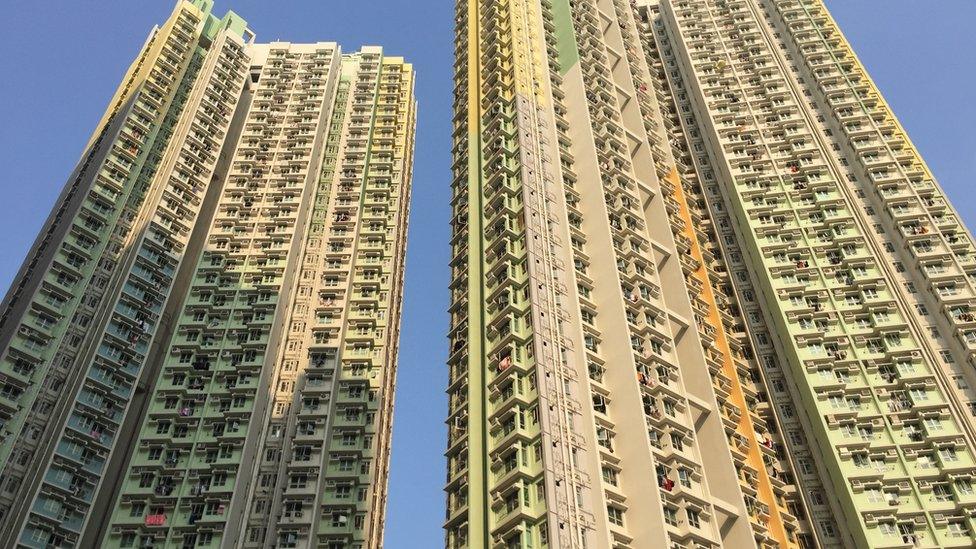
Public housing estates were meant to be a solution
Her flat set her back more than $500,000 and measures a tight 276 sq feet (25 sq m).
She, her brother and her boyfriend will all live in it together - something that she says is not unusual because of how costly property is here.
Hong Kong is one of the most expensive places in the world to own a home according to UBS's Real Estate Bubble Index. , external
Prices have doubled since 2008, and according to Hong Kong's Census and Statistics department, less than half of Hong Kong's households owned their own home in 2017, external, the lowest figure in 20 years.
Public housing estates were meant to be the solution, but there aren't enough of them.
Part of the problem is that property developers who are holding onto unused land banks aren't incentivised to build public housing.
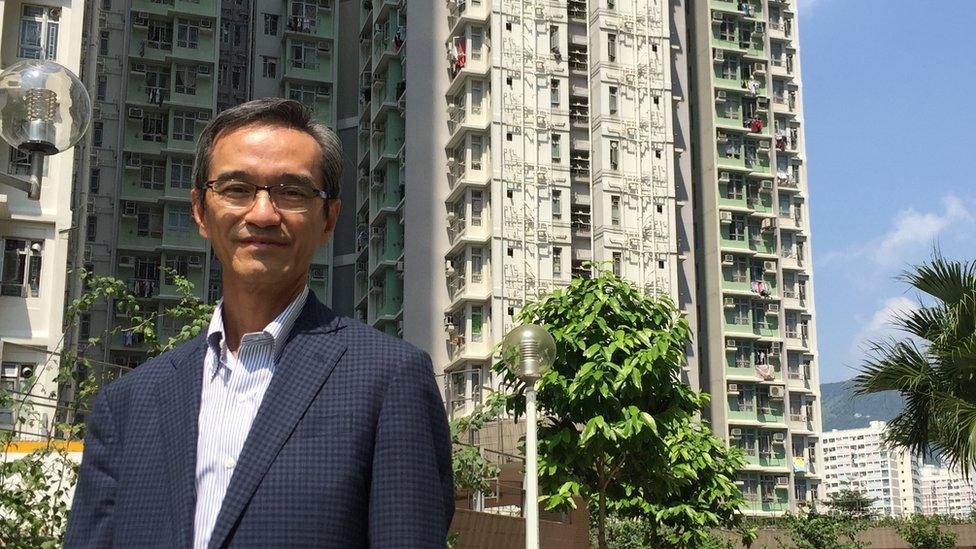
Stanley Wong says there is a problem around land supply
"If they develop [the land] into residential housing on a private basis, they fetch ten times as much," Stanley Wong, the former chairman of Hong Kong's Taskforce on Land Supply tells me.
"For public rental housing - they would then lower the profit to roughly about five times as much. Land supply in any nation is the government's responsibility.
"I must say in the last ten or fifteen years the government hasn't been bold enough to make sure that we will meet land supply in the medium term."
Lack of political will
Hong Kong has one of the lowest tax rates in the world, external, which has helped it become a major financial hub.
Those low tax rates though have meant that the government has had to find other ways to fund education, housing and health programmes.
Traditionally it has relied on revenue from land sales to developers for commercial projects - but that means there's little incentive for the government to free up land for public housing.
The other issue is the complicated makeup of Hong Kong's legislative council, the 70-member body that votes on how public money should be spent. It's dominated by business groups who have typically voted in their own interests.
Hong Kong was a city built for business. But while businesses thrived, others were left out.
A lack of government planning has contributed to the highest inequality rate in Hong Kong in 45 years.
The government now recognises it needs to fix things - but it may be too little, too late.
- Published2 September 2019
- Published28 November 2019
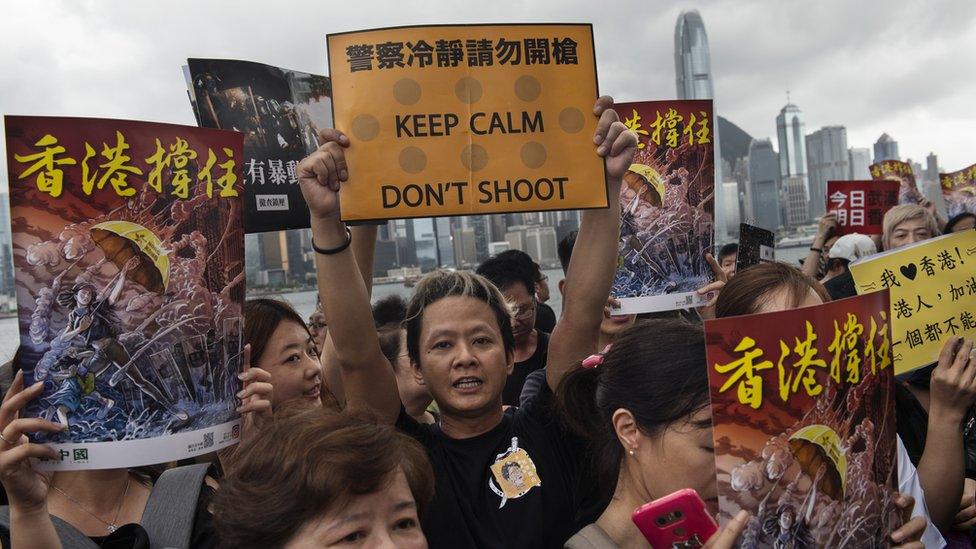
- Published13 August 2019
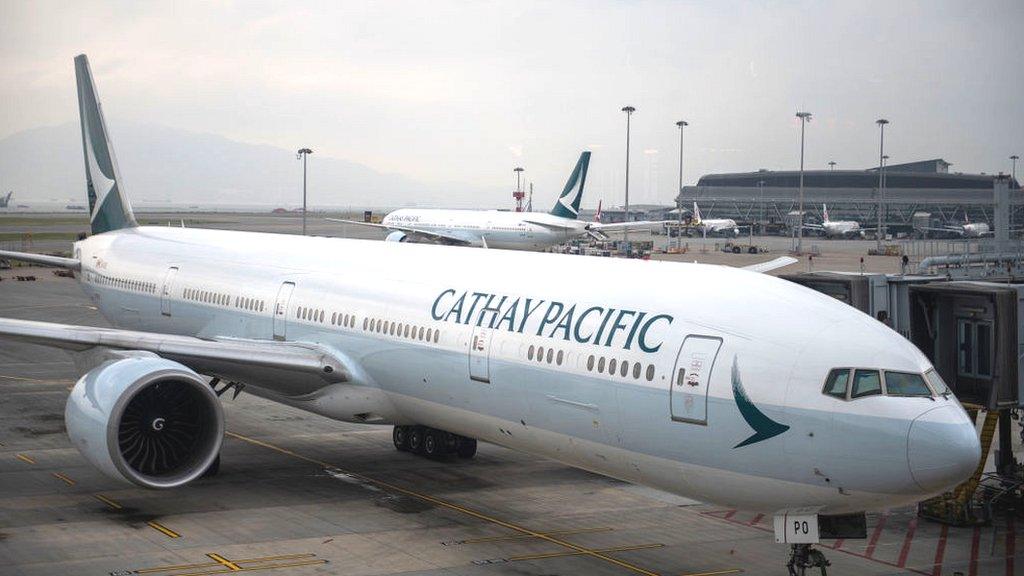
- Published17 August 2019
